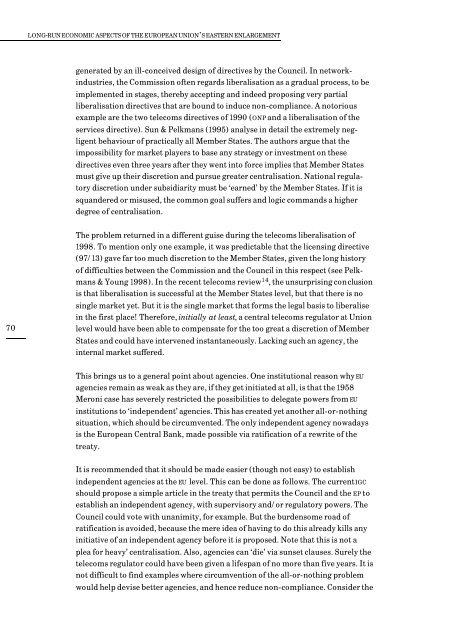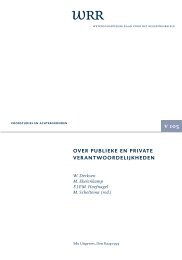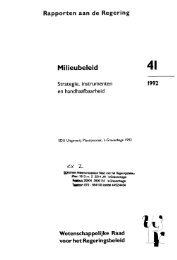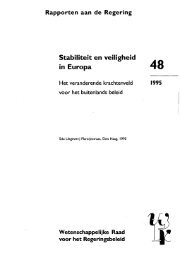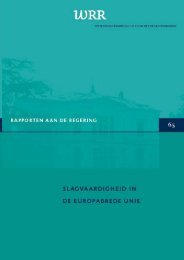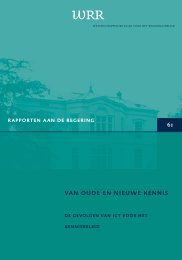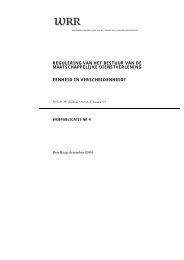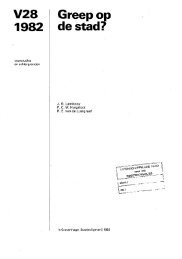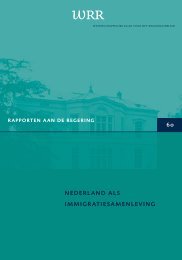w 109 long-run economic aspects of the european union's eastern ...
w 109 long-run economic aspects of the european union's eastern ...
w 109 long-run economic aspects of the european union's eastern ...
You also want an ePaper? Increase the reach of your titles
YUMPU automatically turns print PDFs into web optimized ePapers that Google loves.
LONG-RUN ECONOMIC ASPECTS OF THE EUROPEAN UNION’S EASTERN ENLARGEMENTgenerated by an ill-conceived design <strong>of</strong> directives by <strong>the</strong> Council. In networkindustries,<strong>the</strong> Commission <strong>of</strong>ten regards liberalisation as a gradual process, to beimplemented in stages, <strong>the</strong>reby accepting and indeed proposing very partialliberalisation directives that are bound to induce non-compliance. A notoriousexample are <strong>the</strong> two telecoms directives <strong>of</strong> 1990 (ONP and a liberalisation <strong>of</strong> <strong>the</strong>services directive). Sun & Pelkmans (1995) analyse in detail <strong>the</strong> extremely negligentbehaviour <strong>of</strong> practically all Member States. The authors argue that <strong>the</strong>impossibility for market players to base any strategy or investment on <strong>the</strong>sedirectives even three years after <strong>the</strong>y went into force implies that Member Statesmust give up <strong>the</strong>ir discretion and pursue greater centralisation. National regulatorydiscretion under subsidiarity must be ‘earned’ by <strong>the</strong> Member States. If it issquandered or misused, <strong>the</strong> common goal suffers and logic commands a higherdegree <strong>of</strong> centralisation.70The problem returned in a different guise during <strong>the</strong> telecoms liberalisation <strong>of</strong>1998. To mention only one example, it was predictable that <strong>the</strong> licensing directive(97/13) gave far too much discretion to <strong>the</strong> Member States, given <strong>the</strong> <strong>long</strong> history<strong>of</strong> difficulties between <strong>the</strong> Commission and <strong>the</strong> Council in this respect (see Pelkmans& Young 1998). In <strong>the</strong> recent telecoms review 14 , <strong>the</strong> unsurprising conclusionis that liberalisation is successful at <strong>the</strong> Member States level, but that <strong>the</strong>re is nosingle market yet. But it is <strong>the</strong> single market that forms <strong>the</strong> legal basis to liberalisein <strong>the</strong> first place! Therefore, initially at least, a central telecoms regulator at Unionlevel would have been able to compensate for <strong>the</strong> too great a discretion <strong>of</strong> MemberStates and could have intervened instantaneously. Lacking such an agency, <strong>the</strong>internal market suffered.This brings us to a general point about agencies. One institutional reason why EUagencies remain as weak as <strong>the</strong>y are, if <strong>the</strong>y get initiated at all, is that <strong>the</strong> 1958Meroni case has severely restricted <strong>the</strong> possibilities to delegate powers from EUinstitutions to ‘independent’ agencies. This has created yet ano<strong>the</strong>r all-or-nothingsituation, which should be circumvented. The only independent agency nowadaysis <strong>the</strong> European Central Bank, made possible via ratification <strong>of</strong> a rewrite <strong>of</strong> <strong>the</strong>treaty.It is recommended that it should be made easier (though not easy) to establishindependent agencies at <strong>the</strong> EU level. This can be done as follows. The current IGCshould propose a simple article in <strong>the</strong> treaty that permits <strong>the</strong> Council and <strong>the</strong> EP toestablish an independent agency, with supervisory and/or regulatory powers. TheCouncil could vote with unanimity, for example. But <strong>the</strong> burdensome road <strong>of</strong>ratification is avoided, because <strong>the</strong> mere idea <strong>of</strong> having to do this already kills anyinitiative <strong>of</strong> an independent agency before it is proposed. Note that this is not aplea for heavy’ centralisation. Also, agencies can ‘die’ via sunset clauses. Surely <strong>the</strong>telecoms regulator could have been given a lifespan <strong>of</strong> no more than five years. It isnot difficult to find examples where circumvention <strong>of</strong> <strong>the</strong> all-or-nothing problemwould help devise better agencies, and hence reduce non-compliance. Consider <strong>the</strong>


